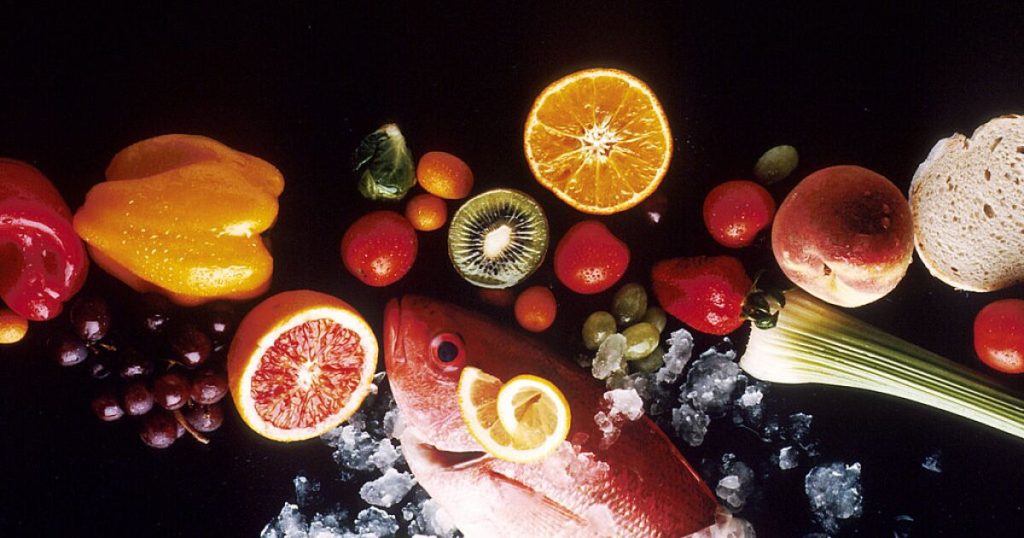Listen to the article
Health experts are pushing back against a wave of dietary misinformation that has gained momentum over the past decade, with concerns intensifying following the recent announcement of “Make America Healthy Again” dietary guidelines by U.S. Health Secretary Robert F. Kennedy Jr.
The guidelines, which have drawn scrutiny from nutrition professionals across the country, represent the latest chapter in what many dietitians describe as an ongoing battle against unfounded nutrition claims and unnecessary dietary restrictions that have permeated social media and popular culture.
“We’ve reached a breaking point where science-based nutrition advice is being drowned out by celebrity endorsements and political messaging,” said Dr. Marion Nestle, professor emerita of nutrition at New York University. “When dietary recommendations become politicized, public health suffers.”
The controversy highlights a growing tension between evidence-based nutrition science and popular diet trends that often promise quick fixes or demonize entire food groups. Experts point to the proliferation of gluten-free diets among those without celiac disease, dairy elimination without medical necessity, and various detox programs as examples of restrictions that lack scientific support for most of the population.
According to the Academy of Nutrition and Dietetics, approximately 45 million Americans go on a diet each year, spending roughly $33 billion on weight loss products. Yet obesity rates continue to climb, suggesting that many popular approaches may be ineffective or unsustainable.
“What we’re seeing is a perfect storm of misinformation,” explained Registered Dietitian Lisa Moskovitz. “Social media algorithms reward extreme claims, while qualified nutrition professionals struggle to convey nuanced, personalized advice that isn’t as attention-grabbing.”
The economic impact of food misinformation extends beyond personal health consequences. The specialty food market catering to various diet trends has expanded into a multi-billion-dollar industry, with products often carrying premium price tags despite questionable health benefits.
Kennedy’s guidelines have particularly alarmed public health officials due to their potential to reach millions of Americans through official government channels. While the complete details of the guidelines haven’t been fully implemented, preliminary announcements have included controversial positions on artificial sweeteners, genetically modified foods, and various additives that don’t align with the scientific consensus from major health organizations.
Dr. Peter Lurie, president of the Center for Science in the Public Interest, noted that “when government officials make dietary recommendations that contradict established research, it creates confusion and undermines public trust in legitimate nutrition guidance.”
Food manufacturers and agricultural sectors are closely monitoring these developments, as shifts in dietary guidelines can significantly impact consumer behavior and market demand. Companies producing plant-based proteins, organic foods, and supplements have seen substantial growth during recent years of nutrition confusion, while conventional food producers have scrambled to reformulate products to align with shifting consumer preferences.
Health experts emphasize that most people would benefit from a balanced approach to eating that includes a variety of whole foods, particularly fruits, vegetables, whole grains, and lean proteins—recommendations that have remained consistent despite changing trends.
“The fundamentals of healthy eating haven’t changed dramatically in decades,” said Dr. Walter Willett, professor of epidemiology and nutrition at Harvard T.H. Chan School of Public Health. “What’s changed is the noise-to-signal ratio in nutrition communication.”
As the debate continues, dietitians are calling for greater media literacy around nutrition information and stronger oversight of health claims made by public figures. Many healthcare organizations are developing resources to help consumers distinguish evidence-based nutrition advice from misinformation.
For those with specific health conditions, experts continue to recommend consulting with registered dietitians who can provide personalized guidance based on individual needs rather than following generalized diet plans from non-credentialed sources.
Fact Checker
Verify the accuracy of this article using The Disinformation Commission analysis and real-time sources.




10 Comments
This is a real problem. Unfounded nutrition claims and unnecessary dietary restrictions can lead people astray and undermine public health. We need to empower consumers with accurate, science-based information to make informed choices.
Well said. It’s crucial that we counter misinformation with facts and promote evidence-based dietary guidance, especially amid the rise of social media influencers pushing unproven diets.
The battle against dietary misinformation is an ongoing challenge, but it’s crucial that we don’t lose sight of the importance of science-based nutrition advice. Politicizing dietary recommendations is a dangerous path that can have serious consequences for public health.
I agree. It’s vital that we empower consumers with factual information and counter the spread of unfounded nutrition claims, no matter the source. The stakes are too high to allow ideology or self-interest to undermine evidence-based guidance.
The proliferation of gluten-free and dairy-free diets among those without medical necessity is a concerning trend. Eliminating entire food groups without a valid reason can do more harm than good. We need to be cautious of fad diets and focus on balanced, nutritious eating.
Absolutely. Unwarranted dietary restrictions can deprive people of essential nutrients and lead to unnecessary health risks. Nutrition advice should be grounded in science, not unsubstantiated claims or personal beliefs.
Interesting article highlighting the dangers of dietary misinformation. It’s concerning to see science-based nutrition advice being drowned out by popular trends and political agendas. We need to be vigilant in separating facts from fiction when it comes to our health and wellbeing.
Agreed. Nutrition should be guided by evidence, not celebrity endorsements or ideology. Public health suffers when dietary recommendations become politicized.
This article highlights the importance of critical thinking when it comes to dietary advice. It’s worrying to see how political messaging and celebrity endorsements can sway public opinion, even if it contradicts established nutrition science. We must stay vigilant and seek out reputable, evidence-based sources.
Well said. Maintaining a healthy skepticism towards unproven diet trends and focusing on the consensus of nutrition experts is key to making informed choices about our health.